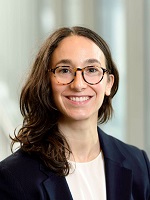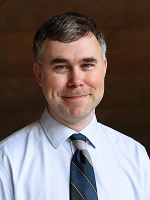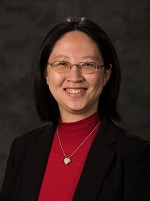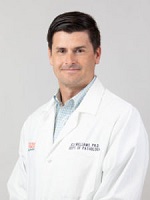Breast Cancer Molecular Testing: Catching Up to Increased Complexity
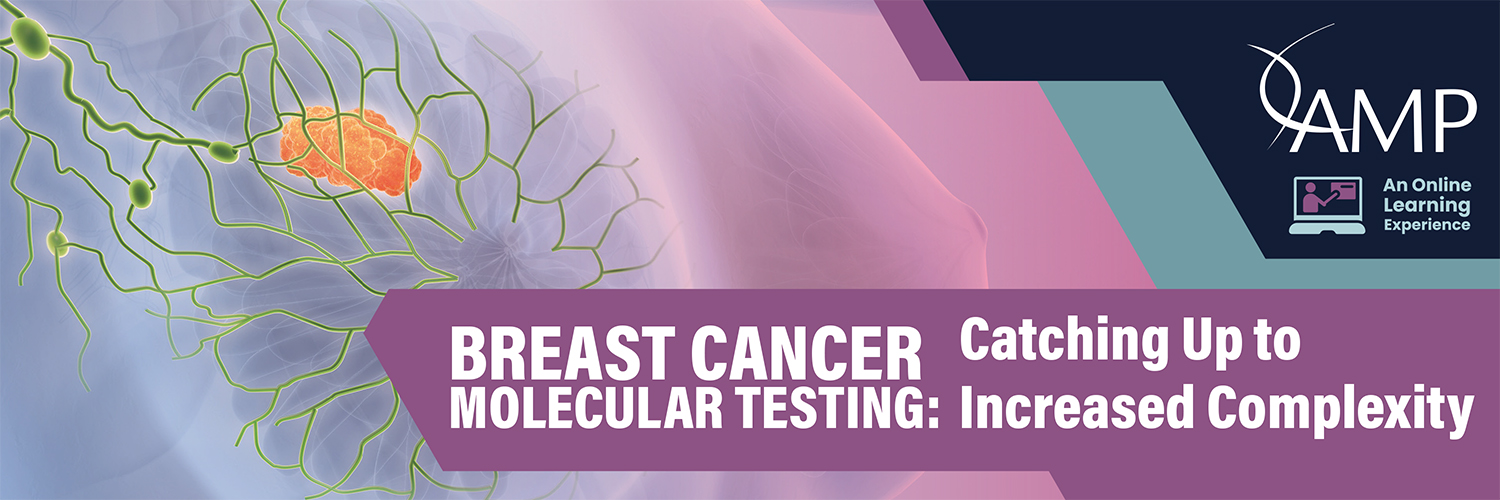
This four-part webinar series will address molecular testing in breast cancer, covering areas such as multi-gene assays, therapeutic predictive testing, somatic next-generation sequencing, and germline testing. The series will provide pathologists with a comprehensive understanding of breast cancer molecular testing, from test selection to interpretation which will ultimately lead to optimal patient care in a rapidly evolving field.
At the end of the series, participants will be able to:
- Describe the purpose of specific multi-gene assays in breast cancer
- Recognize the correct conditions for applying multi-gene assay testing,
- Employ best practices to identify correct specimen type and tumor area for specific molecular diagnostic tests
- List available predictive tests for therapeutic options in breast cancer,
- Discuss the utility and pitfalls of comprehensive next-generation sequencing assays for somatic tumor testing in breast cancer
- Apply best practices in interpretation of germline variants applicable to hereditary breast cancer
- Identify barriers to access to molecular services for patients with breast cancer and describe potential solutions
TARGET AUDIENCE
 Pathologists (molecular and non-molecular), clinical laboratory directors, trainees and fellows, and other laboratory professionals (managers and technologists). Also, oncologists (including medical and clinical oncologists), breast surgeons, oncology nurses, and other members of the oncology care team.
Pathologists (molecular and non-molecular), clinical laboratory directors, trainees and fellows, and other laboratory professionals (managers and technologists). Also, oncologists (including medical and clinical oncologists), breast surgeons, oncology nurses, and other members of the oncology care team.
SCHEDULE
Webinar #1: A Practical Guide to Understanding Breast Multi-Gene Assays
Speaker: Mara Rendi, MD
Date: August 23, 2023
Instant access here
Webinar #2: Predictive Tests for Therapeutic Options in Breast Cancer: Indications, Utility, and Interpretation
Speaker: Kimberly Allison, MD
Date: September 21, 2023
Instant access here
Webinar #3: Somatic NGS Tumor Testing in Breast Cancer
Speaker: Deborah Dillon, MD
Date: February 28, 2024
Instant access here
Webinar #4: Modifiable Genetic & Non Genetic Risk Factors for Breast Cancer
Speaker: Funmi Olopade, MD
Date: April 2, 2024
Instant access here
Molecular in My Pocket™ Reference Card
View card here
Practice Advance Paper
View paper here
CONTENT COMMITTEE
This webinar series is planned and coordinated by the Breast Cancer Webinar Series Content Committee:
|
Lulu Sun, MD, PhD (Chair) |
Melissa Krystel-Whittemore, MD |
Gregory Bean, MD, PhD |
|
Chieh-Yu Lin, MD, PhD |
Eli Williams, PhD |
And supported by the AMP Training & Education Committee
CONTINUING EDUCATION CREDIT INFORMATION
Accreditation Statements
AMA PRA Category 1 Credit(s)™
This activity has been planned and implemented in accordance with the Essential Areas and policies of the Accreditation Council for Continuing Medical Education through the joint providership of American Society for Clinical Pathology (ASCP) and Association for Molecular Pathology (AMP). The American Society for Clinical Pathology (ASCP) is accredited by the ACCME to provide continuing medical education for physicians.
The ASCP designates this material for a maximum of 1.0 AMA PRA Category 1 Credit(s)™per webinar. Physicians should claim only credit commensurate with the extent of their participation in the activity.
CMLE
This continuing medical laboratory education activity is recognized by the American Society for Clinical Pathology for 1.0 hours of CMLE credit per webinar. ASCP CMLE credit hours are acceptable for the ASCP Board of Certification (BOC) Certification Maintenance Program (CMP). CMLE credit hours meet the continuing education requirements for the ASCP Board of Certification Credential Maintenance Program (CMP) and state relicensure requirements for laboratory personnel. Participants should claim only the credit commensurate with the extent of their participation in the activity.
This activity is supported by an educational grant from Lilly.
.png)



